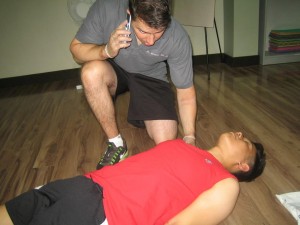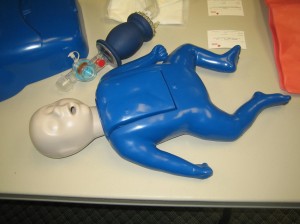Los Angeles CPR is the cheapest you will find for the highest quality CPR certification courses in the state of California. Our CPR training programs are top-of-the-line, taught by certified trainers in high-end facilities. If you need certification for either Basic Life Support or Advanced Life Support training, then Los Angeles CPR is for you. We offer over 5 different classes for CPR, with re-certification classes available as well.
All credentials awarded by Los Angeles CPR is valid for two years. Rescuers who want to renew near-expiry credentials can sign up for re-certification. However, expired certificates are not honored for renewal. If ever a rescuer lets his or her credentials expire, he or she will have to take the entire training program again to receive a new certificate.

Basic Life Support vs. Advanced Life Support
The terms Basic Life Support and Advanced Life Support are pretty self-explanatory. Basic Life Support or BLS teaches trainees about basic CPR skills, focusing on training them to adequately give chest compressions, rescue breaths, and defibrillation to unresponsive victims of cardiac arrest. BLS programs teach students about common cardiovascular disorders and how they can cause a stroke or cardiac arrest. Basic first aid for emergencies like choking is also included in the training programs.
Advanced Life Support, on the other hand, teaches trainees topics beyond the basics of BLS training. CPR management in clinical settings is the focus of ALS curriculum. It teaches trainees how to use CPR equipment such as bag valve masks and medications common for cardiovascular and respiratory emergencies. There are only two programs under ALS, one for the management of adults and one for the management of pediatric patients.

BLS
- Basic CPR (general public) – 4 hours, includes CPR, AED, and first aid training for one-person rescue. Skill exam (post-test) is optional.
- Basic CPR (healthcare providers) – 4.5 hours, tailors Basic CPR for people who work in healthcare. Skill exam and written exam (post-tests) are given at the end to certify rescuers.
- Basic Life Support (healthcare providers) – 4.5 hours, includes CPR, AED, and first aid training for one and two-person rescue. Students who apply to ACLS (Advanced Cardiac Life Support) training are required to have valid BLS certificates. A skills test and post-test are given at the end of the program. Re-certification is available, 4 hours.
ALS
- Advanced Cardiac Life Support – 16 hours over 2 days, management of adult victims of cardiac arrest in a clinical setting, medication (adults), adult assessment. Re-certification is available, 5-6 hours.
- Pediatric Advanced Life Support – 14 hours over 2 days, management of pediatric victims of cardiac arrest in a clinical setting, medication (pediatric), pediatric assessment. Pediatric victims are people younger than 18 years of age. While CPR for older children is the same as an adults, CPR for infants and younger children such as toddlers is quite different. Same goes for dosage of medication and approach used during assessment. Re-certification is available, 6-8 hours.
